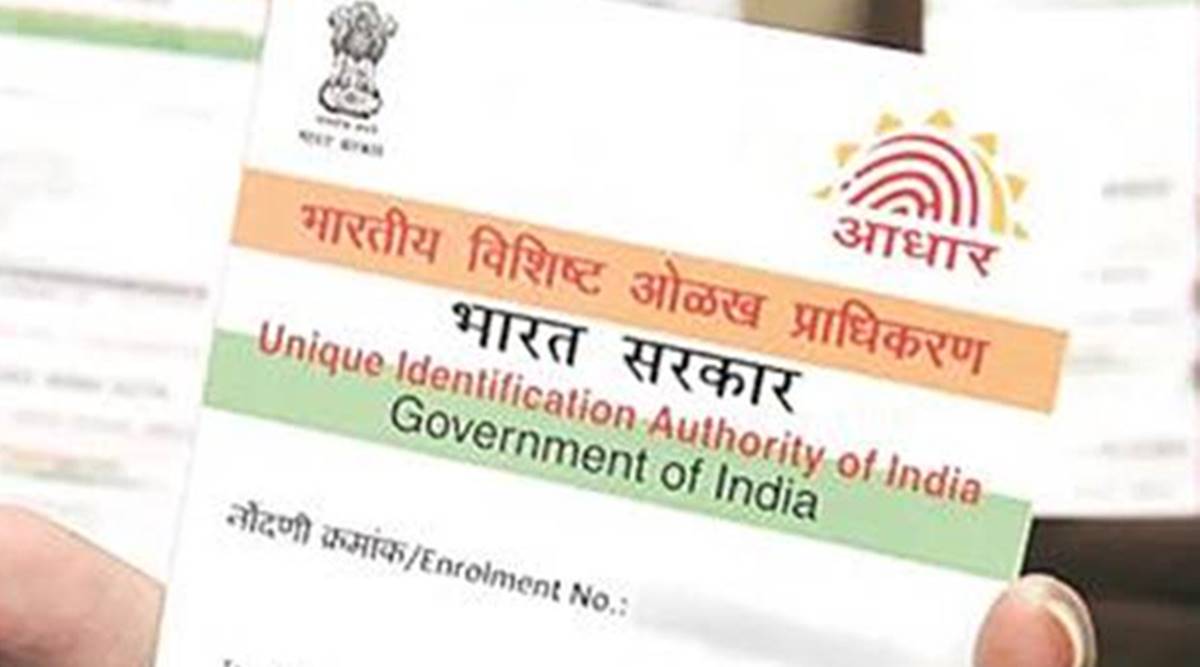Fortifying Aadhaar
~Preet.

The Unique Identification Authority of India (UIDAI) recently issued a caution to the public not to share a photocopy of their Aadhaar with any organisation, only to withdraw the advice due to concerns that it may be misinterpreted.
The UIDAI advised the public not to "share a photocopy of one's Aadhaar with any organisation since it might be abused." Instead, it advised utilising "a disguised Aadhaar, which only reveals the last four digits of the Aadhaar number." It also advised the people to avoid downloading their e-Aadhaar from public computers. In such instance, they were instructed to "permanently erase" any downloaded copies. Only organisations that have secured a User License from the UIDAI can use Aadhaar to verify a person's identification. Furthermore, the Aadhaar Act prohibits hotels and movie theatres from collecting or retaining copies of Aadhaar cards.
Many private companies in the nation require an Aadhaar card, and users often share the information. There is no consensus on how these organisations keep these data private and safe. Many people would have noted that most laboratories want Aadhaar card info during Covid-19 testing. It should be noted that sharing this information is not required in order to take the Covid-19 test. It should be noted that sharing this information is not required in order to take the Covid-19 test. The Supreme Court declared in 2018 that Aadhaar authentication can only be made mandatory for benefits received from the Consolidated Fund of India, and that alternate means of identity verification must always be available where Aadhaar fails. Children were excluded, however aadhaar is still commonly required for essential rights such as anganwadi services or school enrollment. The "ultimatum approach" has been routinely used by the central and state governments to impose the connection of social benefits with Aadhaar. If beneficiaries do not comply with the linking requirements on time, benefits are simply removed or postponed.
AePS is a service that allows someone with an Aadhaar-linked account to withdraw money from it anywhere in India using biometric authentication with a "business correspondent" — a mini-ATM. This facility has been often abused by unscrupulous business correspondents.
The Comptroller and Auditor General of India (CAG) has summoned the Unique Identification Authority of India (UIDAI) to investigate a number of concerns concerning the issuing of Aadhaar cards. Section 57 of the Aadhaar Act was knocked down by the Supreme Court in 2018. Section 57 of the Aadhaar Act basically authorised private businesses to obtain Aadhaar information from people. The clause was deemed "unconstitutional" by the Supreme Court while it was being read down. Later, the Aadhaar and Other Laws (Amendment) Ordinance, 2019, was passed, allowing banks and telecom carriers to accept Aadhaar information as identification.
The Aadhaar number may be verified online and at a low cost. It is distinct and robust enough to eliminate duplication and forged identities, and hence serves as the foundation/primary identity for the implementation of various government assistance programmes, encouraging openness and good governance. Aadhaar has provided identity to a significant number of people who previously lacked it. It has been employed in a variety of activities, including financial inclusion, internet and telecom services, and direct benefit payments to individuals' bank accounts in a transparent way. Aadhaar numbers are dumb and do not profile people based on caste, religion, wealth, health, or location. The Aadhaar number serves as confirmation of identification, but it does not bestow any right of citizenship or residence on the person. Aadhaar is a strategic policy instrument for fostering social and financial inclusion, public sector delivery reforms, fiscal budget management, ease, and hassle-free people-centric governance. Aadhaar may be utilised as a permanent Financial Address, facilitating financial inclusion of the disadvantaged and weaker elements of society, and is therefore a distributive justice and equality instrument. As a result, the Aadhaar identification platform is one of the critical foundations of 'Digital India.'
Benefits should never be withdrawn or suspended without first disclosing the names that are likely to be deleted, as well as the reason for the proposed deletion, issuing a show cause notice to those affected, and giving them ample time to respond or appeal, or disclosing all cases of deletion, with date and reason. The government must follow and implement Supreme Court orders, such as limiting mandatory Aadhaar to permitted reasons, providing an alternative when Aadhaar verification fails, and providing unconditional exemption for children. The National Payments Corporation of India (NPCI) must provide greater protections against the vulnerabilities of Aadhaar-enabled Payment Systems as soon as possible, as well as enhanced grievance redressal services.
Comments
Post a Comment